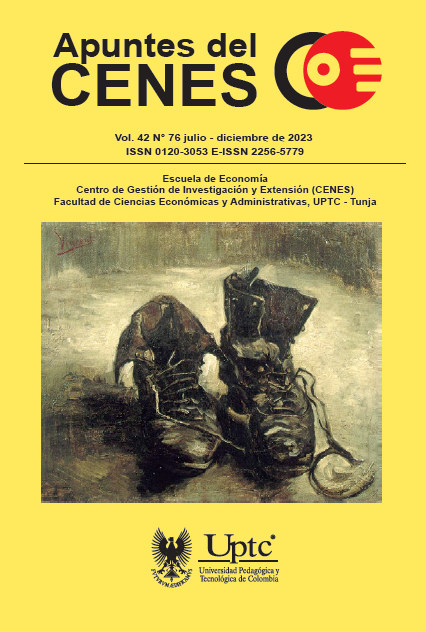La tensión entre educación y economía desde la perspectiva de Adam Smith

Resumen
Este documento examina la teoría de Smith en comparación con los análisis presentes en las teorías de economía de la educación y de la filosofía de la educación. Adam Smith plantea que la educación desempeña un papel esencial en la evolución y el desarrollo de las sociedades de mercado. Para Smith, la educación no es un agregado de las relaciones económicas, sino que interviene para dar cuenta de las patologías que la sociedad mercantil genera en su evolución, relacionadas con la ignorancia, la estupidez y la pérdida de sociabilidad. Este sentido de pertinencia se confronta con el propuesto por las políticas educativas contemporáneas en educación superior, desde los análisis de la economía de la educación, que terminan por desarrollar propuestas funcionales a las lógicas socioeconómicas. La perspectiva de la educación como espacio para la solución de patologías se vuelve afín a las posturas de la filosofía de la educación abordadas por Dewey y Mill que buscan, al decir de Kitcher (2009), el aumento del conocimiento público para la sociedad. El planteamiento de Smith es adecuado para entender el lugar de la educación en sociedades donde predominan lógicas mercantiles; sin embargo, sus soluciones prácticas son inadecuadas porque terminan reproduciendo lo que quiere evitar: las patologías del mercado. En este sentido, el propósito entra en tensión con su aplicabilidad, y esta tensión no es más que la muestra de los problemas que surgen en la sociedad de mercado cuando se pretende posicionar a la educación en el espacio de vida de la sociedad.
Palabras clave
economía clásica, Adam Smith, teoría de la educación, economía de la educación, filosofía de la educación, políticas públicas en educación
Referencias
- Barrera, R.A., Gallardo, A. & Muñoz Dagua, C. (2023, junio). La mano invisible de Smith. Un acercamiento a partir del análisis metafórico. Revista de Economía Institucional, 25(49), 87-108. https://doi.org/10.18601/01245996.v25n49.05
- Cannella, G. S., & Koro-Ljungberg, M. (2017). Neoliberalism in Higher Education: Can We Understand? Can We Resist and Survive? Can We Become Without Neoliberalism? Cultural Studies, Critical Methodologies, 17(3). https://doi.org/10.1177/1532708617706117
- Caplan, B. (2018). The Case Against Education. Princeton University Press. https://doi.org/10.23943/9781400889327
- Cartwright, N. (2006). Well-ordered Science: Evidence for Use. In nombre del editor Philosophy of Science (pp). Cambridge University Press. https://doi.org/10.1086/518803
- Cartwright, N. (2006). Well-Ordered Science: Evidence for Use. Philosophy of Science, 73(5), 981-990. doi:10.1086/518803
- Chace, W. M. (2018). The Case Against Education: Why the Education System Is a Waste of Time and Money by Bryan Caplan. Common Knowledge, 24(3), 430-431. https://doi.org/10.1215/0961754x-6939829
- Cremaschi, S. (2022). The Argumentative Structure of the Wealth of Nations. Iberian Journal of the History of Economic Thought, 9(2), 95-109. https://doi.org/10.5209/ijhe.83973
- Etzkowitz, H. & Leydesdorff, L. (1995, January). The Triple Helix --University-Industry-Government Relations: A Laboratory for Knowledge Based Economic Development. EASST Review, 14(1), 14-19. https://ssrn.com/abstract=2480085
- Fiori, S. (2021). Machines, Bodies and Invisible Hands. Springer International Publishing.
- Hurtado, J. (2019). Adam Smith and Alexis de Tocqueville on the Division of Labour. European Journal of the History of Economic Thought, 26(6), 1187-1211. https://doi.org/10.1080/09672567.2019.1635182
- Jessop, B. (2018). On Academic Capitalism. Critical Policy Studies, 12(1), 104-109. https://doi.org/10.1080/19460171.2017.1403342
- Kitcher, P. (2010). Education, Democracy, and Capitalism. In H. Siegel (Ed.), The Oxford Handbook of Philosophy of Education (pp. 300-318). Oxford University Press. https://doi.org/10.1093/oxfordhb/9780195312881.003.0018
- Knuuttila, T. (2013). Science in a New Mode: Good Old (Theoretical) Science versus Brave New (Commodified) Knowledge Production? Science & Education, 22, 2443–2461. 10.1007/s11191-012-9498-9
- Kotzmann, J. (2018). The Human Rights-Based Approach to Higher Education. Oxford University Press.
- Leydesdorff, L., & Meyer, M. (2003). The Triple Helix of University-Industry-Government Relations. Scientometrics, 58, 191-203. https://doi.org/10.1023/A:1026276308287
- McCowan, T. (2013). Education as a Human Right. Bloomsbury.
- Neuhouser, F. (2023). Diagnosing Social Pathology Rousseau, Hegel, Marx, and Durkheim. Cambridge University Press. https://doi.org/10.1017/9781009235020
- Nowotny, H., Scott, P., & Gibbons, M. (2003). Introduction: “Mode 2” Revisited: The New Production of Knowledge. Minerva, 41, 179-194. https://doi.org/10.1023/A:1025505528250
- Nussbaum, M. (2010). Sin fines de lucro: Por qué la democracia necesita de las humanidades. Akal.
- Olssen, M., & Peters, M. A. (2005). Neoliberalism, Higher Education and the Knowledge Economy: From the Free Market to Knowledge Capitalism. Journal of Education Policy, 20(3), 313-345. https://doi.org/10.1080/02680930500108718
- Otteson, J. (2023, June). Adam Smith on Public Provision of Education. Journal of the History of Economic Thought, 45(2), 229-248. https://doi.org/10.1017/S1053837222000645
- Piqué, P. (2018). The Notions of Sympathy and Value in Parallel. The Problem of the Small Society and the Universal Society in Adam Smith. Tópicos, Revista de Filosofía, 55, 99-126. https://doi.org/10.21555/top.v0i55.918
- Ranga, M., & Etzkowitz, H. (2013). Triple Helix Systems: An Analytical Framework for Innovation Policy and Practice in the Knowledge Society. Industry and Higher Education, 27(4). https://doi.org/10.5367/ihe.2013.0165
- Roncaglia, A. (2006). La riqueza de las ideas. Una historia del pensamiento económico. Prensas Universitarias de Zaragoza.
- Sawa, T. (2015, August). Humanities Under Attack. The Japan Times. https://www.japantimes.co.jp/opinion/2015/08/23/commentary/japan-commentary/humanities-attack/
- Slaughter, S., & Rhoades, G. (2011). Markets in Higher Education: Trends in Academic Capitalism. In P. Altbach, P. Gumport, & R. Berdahl editors American Higher Education in the Twenty-First Century: Social, Political, and Economic Challenges (págs. del artículo pp. 433-464). The Johns Hopkins University Press, Editorial.
- Smith, A. (2008). An Inquiry into the Nature and Causes of the Wealth of Nations. In Readings in Economic Sociology. Oxford University Press. (Obra original publicada en 1776)
- Smith, A. (2011). La riqueza de las naciones. Alianza Editorial.
- Smith, A. (2004). Theory of Moral Sentiments. Series: Cambridge Texts in the History of Philosophy. Cambridge University Press. (Obra original publicada en 1759)
- Smith, C. (2023). Adam Smith and Spontaneous order. In A. Burgio (ed.), Adam Smith and Modernity 1723-2023 (pp. 3-17). Routledge. https://doi.org/10.4324/9781003301448
- Thomas, A. M. (2018). Adam Smith on the Philosophy and Provision of Education. Journal of Interdisciplinary Economics, 30(1). https://doi.org/10.1177/0260107917728597
- Traphagan, J. (2015, Sep.) The Japanese Government’s Attack on the Humanities and Social Sciences. The Diplomat. https://thediplomat.com/2015/09/the-japanese-governments-attack-on-the-humanities-and-social-sciences/
